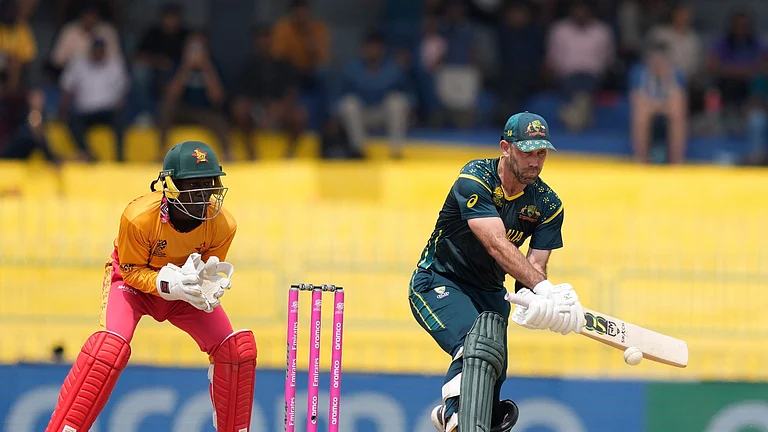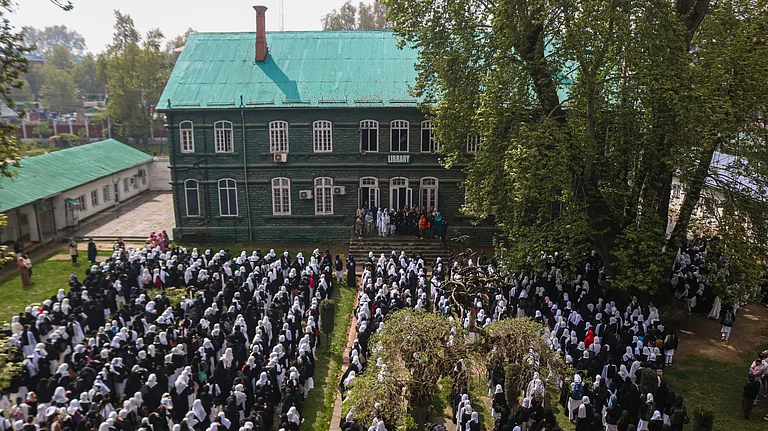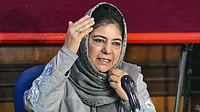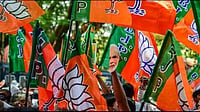The bookstore in the Nehru Park Island Dal Lake was a book lover’s delight. Here you would find yourself surrounded by thousands of books amidst the shimmer of Dal Lake, a mascot of Kashmir’s timeless beauty and a magnet for tourists from all over the world. The reader had access to a reading-room café, a reader’s corner with a view of the lake, moving Shikaras, colourful houseboats, peaks of Zabarwan hills and Hari Parbat fort.
The bookshop had out of print books on Kashmir. The book store had travelogues on Kashmir written by British travellers for the past three centuries. The bookstore brought back old accounts of Kashmir’s history from Mohammad Din Fauq to Khawaja Mohammad Azem Dedmari. Their books were out of circulation but they were in the book store.
Former BBC journalist Andrew Whitehead, an expert on Kashmir and author of A Mission In Kashmir (2007), after visiting Gulshan Books in 2017 wrote on his website that it is “one of the best bookshops not simply in Kashmir (no, there’s not a lot of competition) but in South Asia".
The bookshop symbolised the revival of Kashmiri literature and its civilisation. The books in the store would present Kashmir as a civilisation with its long history, its achievements, its trials and tribulations, its glory and its depths of depravity. The book store in the Nehru Park Island in the Dal Lake was on the go-to list of almost all who were interested in old and new books.
Some of the rare titles in stock included A History Of Budshah In Kashmir (Tarikh-e-Budshahi) by Mohammad Din Fauq; limited editions of Kalhana’s Rajatarangini by M A Stein; Gulabnama: A History Of Maharaja Gulab Singh Of Jammu & Kashmir by Diwan Kripa Ram; Kashir: Being A History Of Kashmir From The Earliest Times To Our Own by G M D. Sufi; and Lalla Vakyani Or The Wise Sayings Of Lal Ded—A Mystic Poetess Of Ancient Kashmir by George Grierson.
And now the store is empty.

In an open hall, in intricately designed wooden bookshelves, shelf space is open for thousands of books but there are no books in the once iconic bookshop.
Its main door is open. Old Kashmir’s pictures are still displayed on the walls. A tourist couple was on the terrace of what was known as the readers’ corner when the bookshop was functioning. They were taking pictures of Dal Lake.
The bookshop at Dal Lake was opened with great fanfare in 2016. After the devastating floods in Srinagar in 2014, lakhs of books were damaged in Srinagar, including the books of Gulshan Books’ main store at the Residency Road. The massive floods damaged lakhs of books in Srinagar.
The High Court library, Advocate General’s library, High Court Bar Association library, and all other libraries were completely damaged in the floods. The flood took away all literary archives and bookshops of Srinagar. Persian, Urdu, and Victorian-era judgments of the Jammu and Kashmir High Court were all damaged. The Government press lost its library housing 12,000 books.
The Central Library of Women College Srinagar on M A Road was established in 1950. Before September 2014 floods, it had 84,000 books catering to the needs of more than 8,000 students. The first five books that the library acquired were donated by the first Prime Minister of India Jawaharlal Nehru on his visit to the college in 1951. The first book of the college library was titled “Rajatarangi-Saga of Kashmir” by Pandit R Sitaram. All the books in the library suffered damage. The SP College, established in 1905 as Intermediate College after upgrading the famous Hindu High School in Srinagar, had one of the finest libraries in Srinagar. The college had around 80,000 books. Nearly 60,000 books suffered damage.
Ali Muhammad & Sons, one of the oldest bookshops of the Valley established in 1932, had lost 3.5 lakh books. However, after the great floods, Gulshan Books was the first to reopen its book store at the Residency Road.
The owner of Gulshan Books, Sheikh Ajaz Ahmad, 50, not only reopened his main book store at the Residency Road but he approached the then chief minister Mufti Mohammad Sayeed with the idea of having a bookshop at Nehru Park on Dal Lake. Mufti readily agreed. In 2016, after its inauguration, the then Chief Minister Mehbooba Mufti herself visited the bookstore.
In the past six years, people from different walks of life including literary icons, authors, politicians, and Bollywood stars would visit the bookshop. Before the pandemic, on average, around 5,000 people would visit the Dal Lake bookstore every month. Many would spend time in the reading room. The bookshop had a reading room and café attached to it.
It was not hard times of the pandemic that led to the closure of the book store. On the contrary, the bookshop owner had asked the government that he should be allowed to run the bookshop from the government facility. But the government was in no mood to listen and asked him to remove his 80,000 books from the shop by March 10. He removed all the books and since then it hasn’t been put to any use.
The bookshop was closed after Jammu and Kashmir government didn’t extend the contract to the bookstore located at the second storey of the Jammu and Kashmir Tourist Corporation building in Nehru Park Island of Dal Lake.

Mehrajuddin Bhat, a local shikarawalla (boatman) said he carried thousands of books on his boat from the bookshop to the banks of Dal Lake.
“We don’t know why the bookshop was closed. A number of people still come here and inquire about the bookshop. We tell them it is closed. They return disappointed. The bookstore didn’t announce that it has closed. That is why people ask for it,” said Bhat.
Apart from books, the photographs of the Dogra period (1846-1948) of Kashmir were dotting its walls. A shikara from Dal Lake’s banks would take anyone interested to visit the shop. The shop owner had kept the shikara exclusively for anyone interested in visiting his bookshop. The visitors riding the shikara weren’t charged anything.
Ahmad is silent about the whole affair and prefers not to speak against anyone.
He said they had an agreement with the government to use the JKTDC premises for the bookshop for five years. He said after the expiry of the date last year, the government extended the agreement for one year. But this year for unknown reasons, the government didn’t extend the date despite many communications.
For Ahmad, the bookshop was more of a passion.
He said, “It had become one of the major attractions for book lovers, litterateurs, youngsters, high-end tourists, Bollywood stars. We wouldn’t earn much but we would be satisfied to see the delight on the faces of book lovers.
In the Dal Lake area, I don’t think anyone ever had ever opened a bookshop, though the Lake has remained the focus of almost every book written on Kashmir whether by foreigners or local Kashmiri authors."
In 2018, Limca Book of Records had included Nehru Park bookshop of Gulshan Books in its edition under the title "Only bookshop-library on a lake". The Limca Book wrote, "Gulshan Books, a bookshop set up in May 2016, has a reading room, a cafe, and over 80,000 books. This bookshop-cum-library, on the Nehru Park island of the Dal Lake in Srinagar, Jammu and Kashmir, can be reached by a shikara ride. The owner, Sheikh Ajaz Ahmad willingly offers free shikara rides to everyone keen to read books on Kashmir and its literature."
It is not the first time that the government has closed a cultural space. In 2015 Syed Mujtaba Rizvi, opened the first art gallery in Kashmir at a space provided by the state government in the tourism department. Rizvi, then 26, had returned to Kashmir after completing a post-graduation in Management of Innovation and Fine Arts Extension from Goldsmiths University of London. The gallery opened doors for all. Exhibitions were held at the gallery and artists from different parts of the country would come to have discussions about art at the gallery. Then out of the blue, the state government asked Rizvi to vacate the building. He was not given sufficient time to move out. His artworks were removed and the gallery shut down abruptly.


























